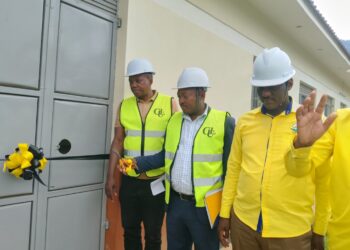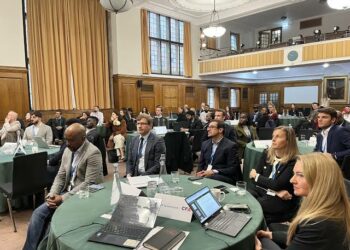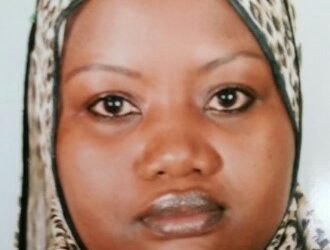Rwanda has reopened its border with DR Congo, where an Ebola outbreak has killed more than 1,800 people in the past year.
The border was closed for several hours on Thursday after the confirmation of a third death from Ebola in the Congolese city of Goma.
At least 2,700 people have been infected in the worst Ebola outbreak in the country’s history.
Tackling the disease has been complicated by conflict in the region.
About 12 new cases are being reported every day in Democratic Republic of Congo, the World Health Organization (WHO) reports.
Last week, the WHO designated the outbreak of Ebola a global health emergency, its highest level of alarm, but warned against trying to contain the virus by closing borders or restricting travel or trade.
What is the situation on the ground?
Goma, home to two million people, is the capital of North Kivu, one of the two provinces in DR Congo which have borne the brunt of the epidemic.
The city lies just across the border from the Rwandan city of Gisenyi, which has a population of around 85,000. Many residents cross the frontier for work and other activities – although illegal routes are also used.
The border had been closed “to avoid unnecessary crossings” to Goma, Gilbert Habayarimana, mayor of Rubavu district in western Rwanda which borders Goma, said earlier.
The Congolese presidency had criticised the decision to close the border, and people on the Rwandan side rejoiced after it was reopened.
Rwanda’s government has intensified cross-border monitoring, advising citizens to avoid unnecessary travel to Goma, according to Health Minister Diane Gashumba.
Life goes on pretty much as normal in both Goma and Gisenyi, although some got worried when the two official border crossings were closed earlier on Thursday. And soldiers and police were also deployed to the many unofficial crossing points which people often use.
Thursday is a public holiday in DR Congo, Parents’ Day. People clean up the graves and pay respects to their deceased relatives in the morning before taking gifts to their parents. Most people were still shaking hands and embracing when meeting. Only a few have stopped since Ebola was confirmed in the city.
The only major change is that water taps have been set up in public buildings, where people have to wash their hands before entering, and at the two official border crossings.
There are still quite a few in Goma who still do not believe that Ebola exists but this might change now that another person has died.
Do you have a story in your community or an opinion to share with us: Email us at editorial@watchdoguganda.com










